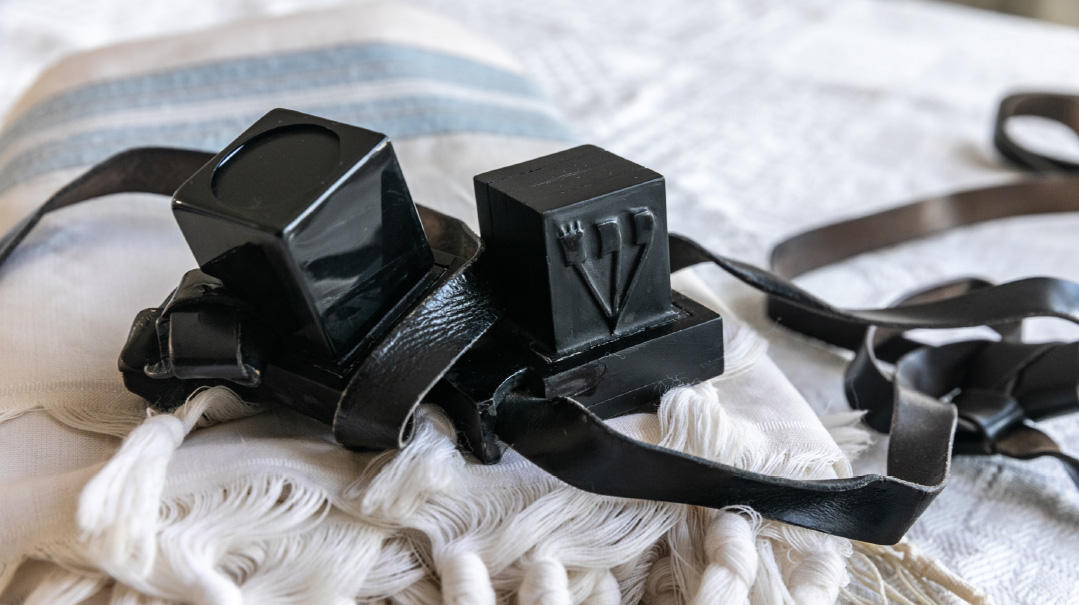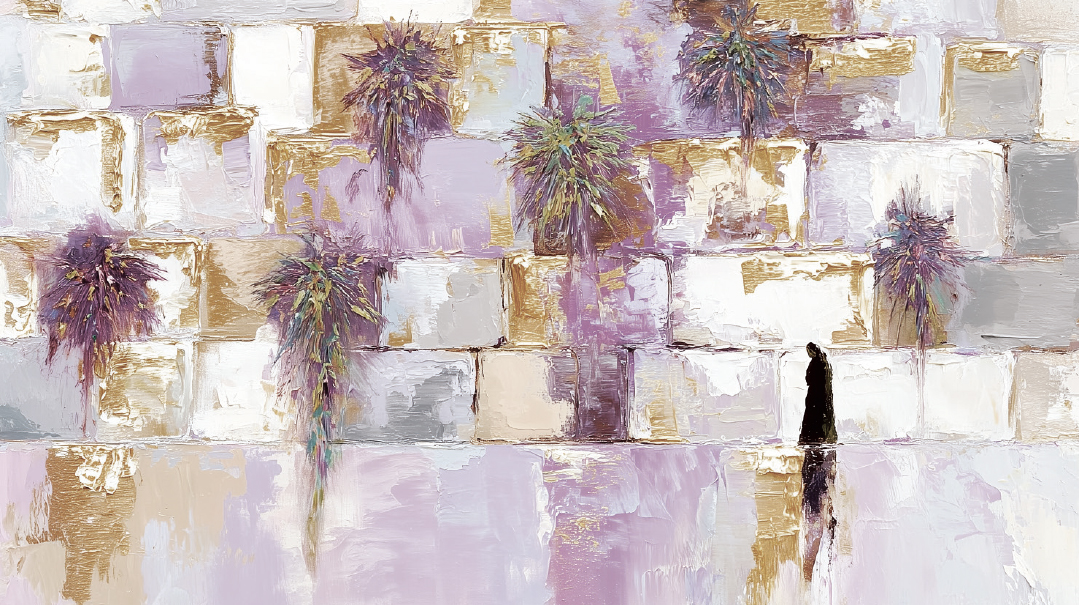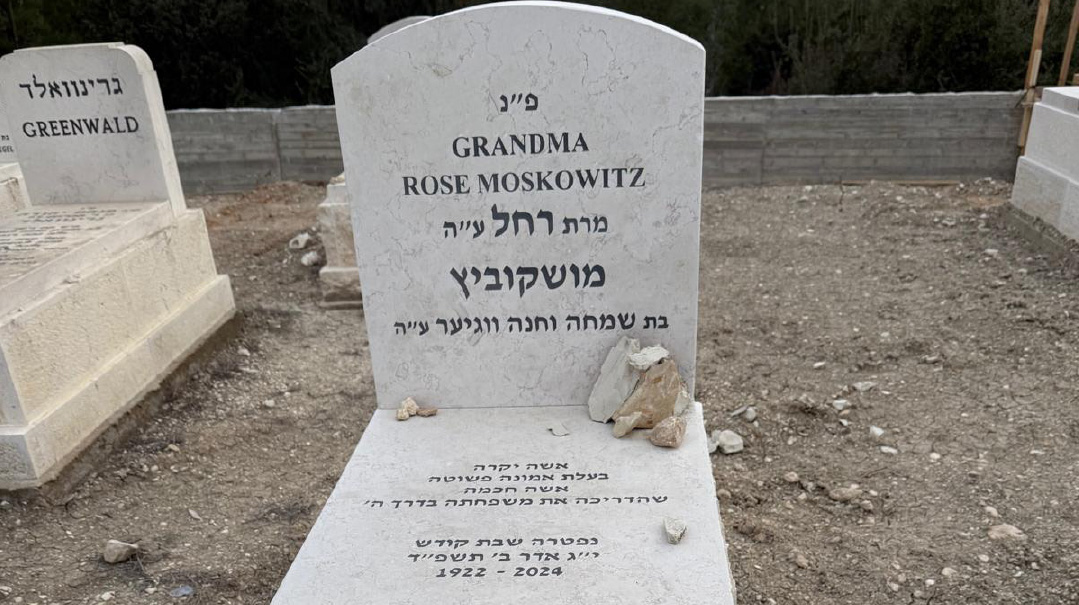Working Miracles in His Sleep
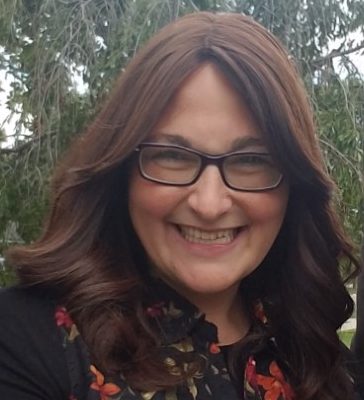
My family and I are still reeling — although we’ve seen many miracles over the past few months
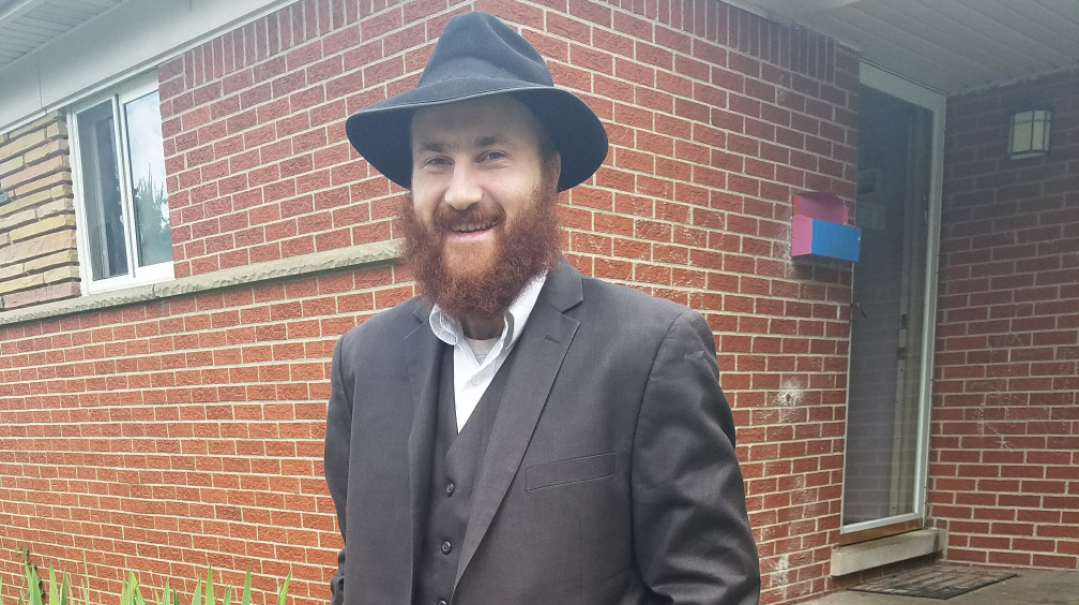
Last year, on 16 Tammuz, my brother Yehuda Leib Greenwald sent uplifting voice notes to his family and friends, sharing heartfelt blessings on the occasion of his 36th birthday. This year, we listen to those messages with pain in our hearts. Who could ever have imagined that by this year, this healthy, energetic, happy man would no longer be in this world? My family and I are still reeling — although we’ve seen many miracles over the past few months.
The first miracle involved Jaclyn, a non-Jewish lady who’d recently moved to Brooklyn and got a new phone number. Jaclyn was still getting calls for the person who’d previously had that number — “Yossi the esrog seller,” who, it turned out, had moved to Canada.
On March 11, as Jaclyn was on an errand, she noticed a man with a red beard walking his bike. He sat on a bench and started having what looked like a seizure. He was actually having cardiac arrest. Jaclyn immediately called 911.
The ambulance arrived four minutes later. Jaclyn watched as the man was defibrillated and rushed away to the closest hospital. Of course, there was no way for Jaclyn to know what happened to him.
Meanwhile, the ER staff identified the man from his driver’s license, but his address was a post office box, and they couldn’t figure out how to reach his family. He was clearly Orthodox, with his tzizis and yarmulke, so they forwarded his license to Hatzalah, who posted it around the community until someone put two and two together and reached our parents in Australia.
My sister and brother-in-law, Brocha and Shimmy Blumenberg of Monsey, were the first family members at Yehuda Leib’s bedside. Brocha spent that first terrifying night alone in the hospital, watching Yehuda Leib hooked up to life support. The entire night, doctors kept asking Brocha what happened. Did he hit his head? She had no idea.
Immediately, one of Yehuda Leib’s close friends, Chaim Pil, created a Tehillim chat. This chat — for Yehuda Leib ben Baila to have a refuah sheleimah — became a lifeline. Many hundreds of people around the world said Tehillim around the clock. It was so inspiring and heartwarming.
Chaim added everyone in his phone’s contacts list to the chat, including the number he had in his phone for his old buddy, Yossi the esrog seller — which now belonged to Jaclyn.
When Jaclyn woke up the next morning, her phone had blown up with messages. She’d been added to a WhatsApp chat — but for what? What were all these numbers and Hebrew letters?! She scrolled up and came across a picture of Yehuda Leib.
She wrote: “Holy smokes! I called 911 for him yesterday… Is he going to make it?”
Brocha, sitting next to Yehuda Leib, saw this message and immediately called Jaclyn and introduced herself. Then she passed the phone to the doctor, and Jaclyn shared what she’d seen. No, Yehuda Leib had never hit his head.
From that conversation, the doctors realized they could remove a cumbersome neck brace they’d put on him, for fear he’d sustained a spinal injury.
Another miracle: One of the first people who walked into Yehuda Leib’s hospital room was Peretz Gutnick, a classmate from Australia who’d moved to America just months before. Peretz had started working as an emergency room nurse in Brooklyn’s Maimonides Hospital, one of the top cardiac hospitals in the state… which is where Yehuda Leib wound up.
Peretz helped Yehuda Leib and our family however he could, visiting on his breaks and days off. He patiently translated confusing medical jargon for us and advocated for Yehuda Leib with the staff. And it wasn’t easy for him — this was his friend in a coma. We felt like Hashem Himself had moved Peretz to Brooklyn as a refuah before the makkah.
My family and I spent a lot of time talking to Yehuda Leib and playing niggunim for him. My mother, who was with him constantly, made sure someone put tefillin on Yehuda Leib every day. We hoped he would soon wake up, and we could tell him he never missed a day.
Once, one of Yehuda Leib’s friends turned up with tefillin. When he walked in, he admitted, “I feel awkward that I’m even bringing tefillin for Yehuda Leib, because I don’t even put them on myself anymore.”
My mother said, “Actually, he’s already put on tefillin today…. but why don’t you put tefillin on in honor of Yehuda Leib?”
And with tears in his eyes, this man did lay tefillin, for the first time in a long while. It was like Yehuda Leib was doing mivtza’im in his sleep.
On 5 Iyar/May 13, after two months of being unresponsive in a coma, Yehuda Leib sadly had another cardiac arrest and passed away.
A friend shared that he asked people in the large crowd at the funeral, “How did you know Yehuda Leib?”
Many answered, “From Kingston Avenue.” They knew him from walking down the street. Yehuda Leib was so warm and friendly toward everyone that they naturally felt close to him. Of course they came to his funeral.
Yehuda Leib’s childhood friend, Binyamin Gordon, now a Chabad shaliach in Vancouver, shared that when they were teenagers, a group of them would walk on Shabbos for over an hour to help make a minyan. One week, Binyamin was wearing new Shabbos shoes that weren’t broken in yet and were hurting his feet. He started to turn back.
Yehuda Leib came up with a simple solution: “Let’s switch shoes!”
And they did. Yehuda Leib wore Binyamin’s uncomfortable new shoes all the way to shul, likely getting blisters, without a word of complaint.
Yehuda Leib worked at Beigel’s Bakery, and when his managers came to be menachem avel, we naturally asked them about his last day. Yehuda Leib had been heading home from work when he had his first cardiac arrest in the street. Had he complained of pain at work? Yehuda Leib had been resting in the break room, they told us, but they had no reason to suspect he felt unwell. When someone asked Yehuda Leib for assistance, he’d jumped up as usual, eager to help out.
That was Yehuda Leib in a nutshell, always ready to help others in any way possible. He was known for his sincere warmth and kindness and for greeting every person with a smile.
May his holy neshamah have an aliyah.
(Originally featured in Mishpacha, Issue 1021)
Oops! We could not locate your form.

